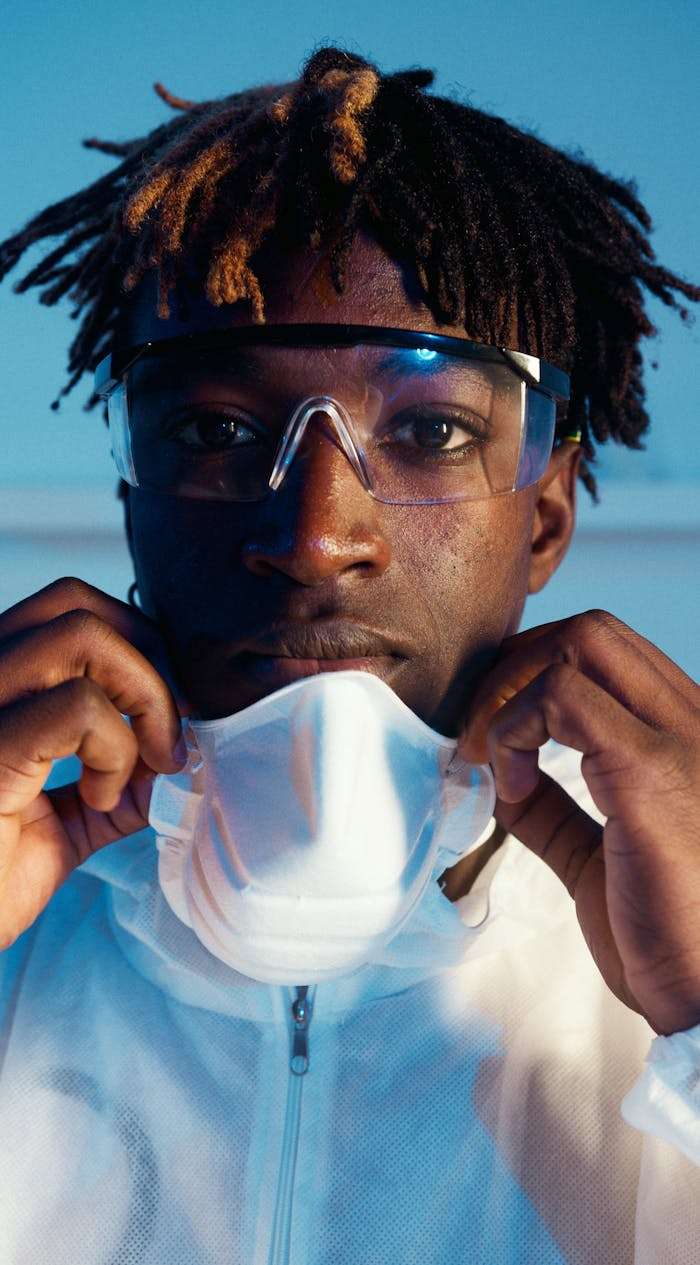Hair loss can be a stressful and emotional experience, especially when you start searching for causes and solutions. Among the many myths circulating, one commonly debated topic is whether masturbation causes hairfall. While this idea has gained traction in some discussions, it’s crucial to explore the facts and clear up the confusion surrounding hair loss.
In this post, we’ll dive deep into the science behind hairfall, discuss whether masturbation plays any role, and explore other common causes. Understanding the real reasons behind hair loss can help you make better decisions about your health.
Understanding Hairfall: The Basics
First off, it’s essential to understand that hairfall, or hair loss, is a natural part of life. On average, a person loses between 50 to 100 hairs daily. This is simply part of the hair growth cycle, where new hairs replace those that fall out. However, excessive hair loss can raise concerns, leading many to look for possible causes. But where does the idea of masturbation fit in?
The Myth: Masturbation and Hairfall
The belief that masturbation causes hairfall is rooted in outdated and unscientific assumptions about how sexual activity affects the body. Some suggest that frequent masturbation drains the body of vital nutrients like protein and testosterone, which are believed to be necessary for hair growth. But does this claim hold up to scrutiny?
Let’s break it down:
- Testosterone Levels: Masturbation does not significantly affect testosterone levels. While there may be minor fluctuations immediately following sexual activity, these changes are temporary and have no lasting effect on hair growth.
- Nutrient Loss: The idea that semen contains large amounts of protein, and that losing it through masturbation depletes the body, is an exaggeration. While semen does contain protein, the amount is so small that it doesn’t impact overall health, especially for those with a balanced diet.
The Science: Masturbation Doesn’t Cause Hairfall
To date, no scientific studies or credible research have proven any link between masturbation and hair loss. Hairfall is influenced by a variety of other factors, none of which include masturbation. Here are some of the primary reasons people may experience hair loss:
- Genetics: By far, the most common cause of hairfall is genetics. Androgenetic alopecia, or male and female pattern baldness, is inherited and has nothing to do with lifestyle habits like masturbation.
- Hormonal Changes: Hormonal imbalances, such as those caused by pregnancy, menopause, or conditions like thyroid disorders, can contribute to hair loss. However, these changes have no link to masturbation.
- Stress: Chronic stress can lead to a condition known as telogen effluvium, where hair enters a resting phase prematurely, causing it to fall out in larger quantities. Emotional stress or trauma can trigger this type of hair loss, but once again, this has nothing to do with masturbation.
- Nutritional Deficiencies: Poor diet, particularly lacking in essential vitamins and minerals like iron, zinc, and biotin, can weaken hair and cause it to fall out. A balanced diet is crucial for maintaining healthy hair.
- Medical Conditions: Certain medical conditions, such as alopecia areata or autoimmune diseases, can result in hair loss. These conditions require professional medical treatment and are unrelated to sexual activity.
What Actually Causes Hairfall?
Now that we’ve clarified that masturbation doesn’t cause hairfall, let’s look at the actual reasons people experience hair loss. Understanding these factors can help you prevent unnecessary worry and focus on real solutions.
1. Genetics and Heredity
Genetics play the most significant role in hair loss. If you have a family history of hair thinning or baldness, it’s likely that you may experience the same. Male and female pattern baldness progresses gradually over time and is largely predetermined by your genes.
2. Hormonal Changes
Hormones play a critical role in hair health. Women often experience hair loss due to hormonal fluctuations, especially during pregnancy, after childbirth, or during menopause. Conditions like polycystic ovary syndrome (PCOS) or thyroid disorders can also trigger hairfall.
3. Stress and Anxiety
Stress can have a profound effect on your body, and hair is no exception. A condition called telogen effluvium is often triggered by physical or emotional stress, causing more hair than usual to fall out. Practicing stress management techniques, such as meditation or yoga, can help reduce this type of hair loss.
4. Poor Diet
A poor diet lacking essential nutrients can also lead to hairfall. Deficiencies in vitamins and minerals, especially iron, zinc, vitamin D, and biotin, weaken the hair, making it more prone to breakage and falling out. Incorporating a diet rich in fruits, vegetables, and lean proteins can help promote stronger, healthier hair.
5. Hair Care Practices
How you treat your hair also impacts hairfall. Using excessive heat tools like straighteners and blow dryers, or wearing tight hairstyles, can put stress on hair follicles, leading to breakage. Opting for gentle styling methods and limiting heat exposure can prevent unnecessary hair damage.
How to Prevent Hairfall
While some hair loss is inevitable due to aging or genetics, there are steps you can take to reduce excessive hairfall and promote healthier hair. Here are a few tips:
- Maintain a Balanced Diet: A diet rich in protein, iron, and vitamins is essential for strong, healthy hair. Foods like eggs, nuts, leafy greens, and fish are excellent for promoting hair growth.
- Manage Stress: Finding ways to manage stress, such as practicing mindfulness, yoga, or regular exercise, can have a positive impact on both your hair and overall health.
- Gentle Hair Care: Avoid aggressive hair styling and brushing. Use a wide-toothed comb to detangle wet hair and try not to tug or pull on your hair unnecessarily.
- Limit Heat and Chemicals: Minimize the use of heat styling tools like curling irons or straighteners. When using them, always apply a heat protectant spray. Limit chemical treatments like bleaching and perms, which can weaken hair.
- Consult a Professional: If you’re noticing significant hair loss, it’s best to consult a dermatologist or healthcare professional. They can help diagnose underlying issues like hormonal imbalances or nutritional deficiencies.
Conclusion
In conclusion, the idea that masturbation causes hairfall is nothing more than a myth. Hair loss is influenced by a range of factors such as genetics, hormones, stress, and diet, none of which are connected to masturbation. By focusing on maintaining a healthy lifestyle, managing stress, and taking care of your hair, you can keep it strong and reduce hairfall.
If you’re concerned about hair loss or have noticed excessive shedding, don’t hesitate to consult a healthcare provider for a proper diagnosis and treatment plan. Feel free to leave your thoughts or questions in the comments below – we’d love to hear from you!


